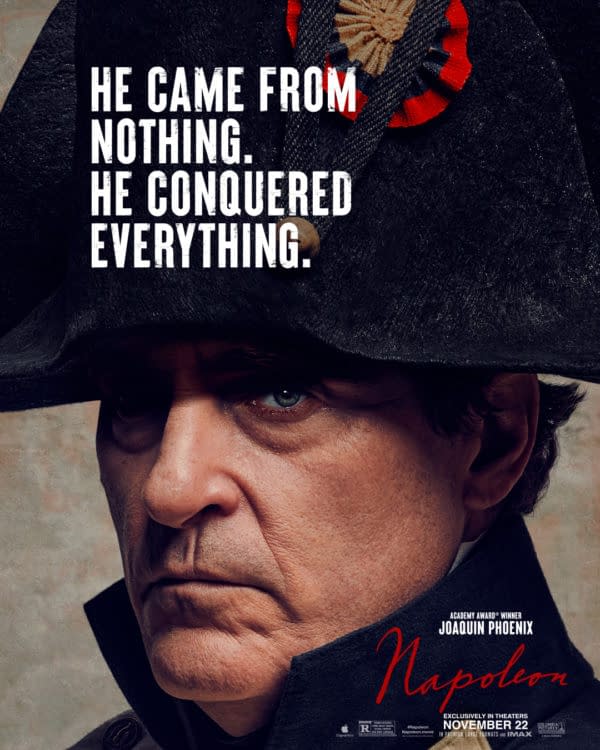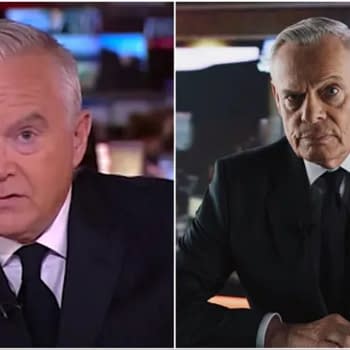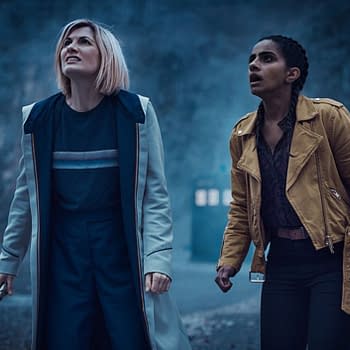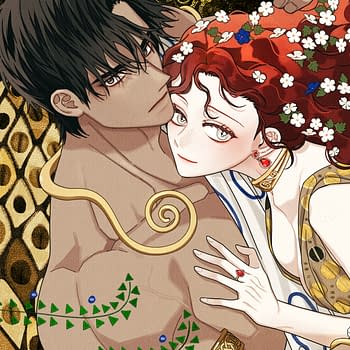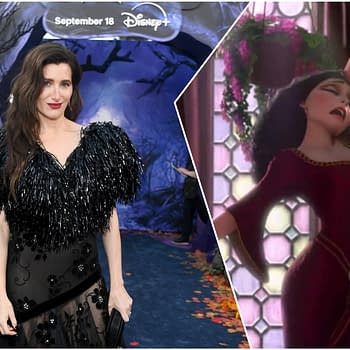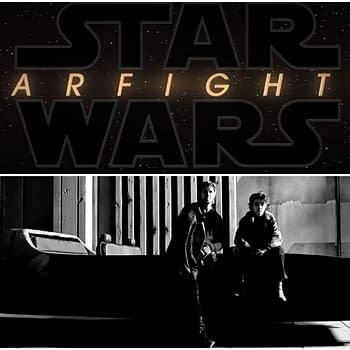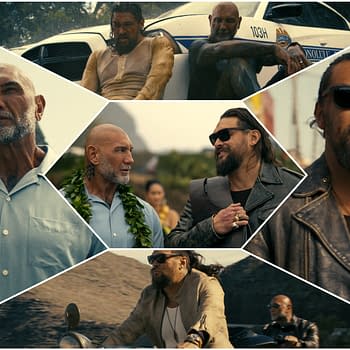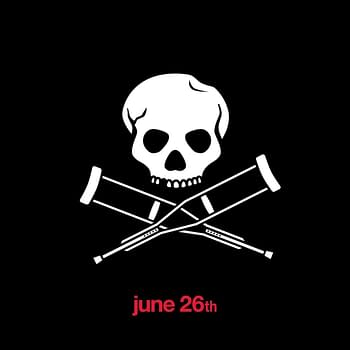Posted in: Apple, Movies, Review | Tagged: apple tv, barry lyndon, fabio napoleoni, Feature Film, historical epic, Joaquin Phoenix, napoleon, Napoleon the Director's Cut, Rupert Everett, stanley kubrick, Vanessa Kirby
Napoleon: Ridley Scott's Director's Cut is an Anti-Great Man Comedy
Napoleon: The Director's Cut is a better-paced, fuller movie that reveals Ridley Scott's intention was to make a subversive comedy
Article Summary
- Director Ridley Scott's Napoleon: The Director's Cut is longer, better-paced, and funnier than the theatrical version.
- Joaquin Phoenix’s portrayal of Napoleon as an insecure, unlikeable character subverts the "Great Man" narrative.
- Scott highlights Napoleon's toxic, co-dependent relationship with Josephine, making it miserable and unromantic.
- The film presents a satirical, irreverent take on historical events, challenging the myth of "Great Men" in history.
SHOCKER: Napoleon: The Director's Cut is good! It may be longer, but it improves upon the theatrical version with better pacing, restoring scenes and moments that explain the historical and political reasons for the characters' actions and is also a more complete story that makes director Ridley Scott's true intentions, which is to make an anti-Great Man story as an utterly irreverent comedy. The main character is not a Great Man but a miserable jerk, and the message of the film seems to be "Don't trust the myth of any Great Men." This makes it the most subversive historical blockbuster epic of the 21st Century. If you watch it knowing this, it is actually very funny, even if some of that laughter turns bitter.
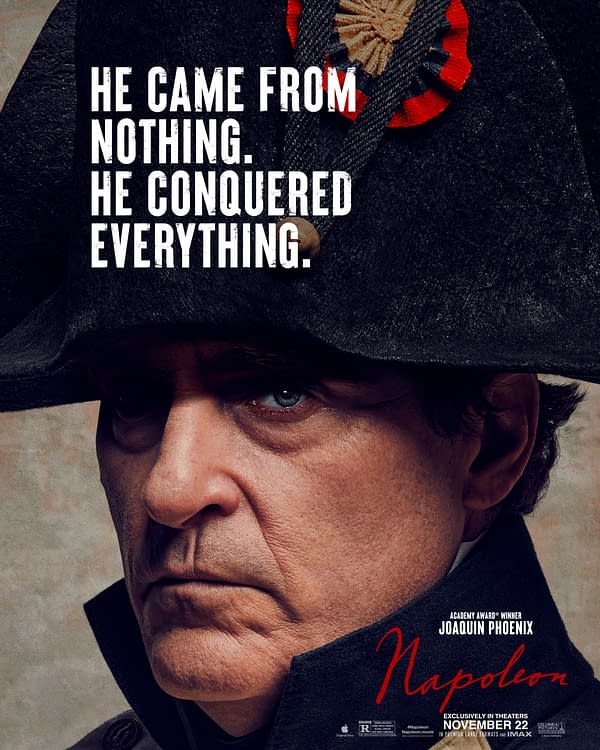
Napoleon is Not a Great Man, Just a Miserable Jerk!
Ridley Scott seems to have a very strong point of view here, which is in opposition to the "Great Man of History narrative." It feels like he deliberately had Joaquin Phoenix play Napoleon Bonaparte as the most unlikable, uncharismatic, insecure, incel dweeb imaginable. He's petulant and uncouth, makes weird noises with his mouth to get attention, and is prone to tantrums. He's the epitome of every unhappy twelve-year-old boy you've ever had the misfortune to babysit, made even worse that he's a horny grown man, and even sex and love don't make him happy. It's hard for me not to laugh at every scene in which Phoenix does something, either physical or verbal, that just makes this guy utterly appalling and hilariously unappealing. Phoenix plays Bonaparte as if he didn't want to be here, and Paul Schrader's complaint about his lack of charisma might be the whole point. Bonaparte's military prowess or skill does not make him charismatic or glamorous here; he doesn't even take any joy from winning. Some viewers might have found the subversion of "The Great Man" story confusing since we've all been conditioned to treat historical biopics as respectful, but this movie is very funny. The casting of many British comedy actors who are normally familiar to British TV audiences seems to be a clue to Scott's intentions here. Yet Scott's staging of the epic battles, each bigger than the last, culminating in Napoleon's defeat at Waterloo, can be considered some of the best in Cinema History. The Battle of Waterloo might be the best portrayal of a war of attrition I've ever seen in a film where each side tries to wear down the other to achieve victory.
A Napoleon Movie to Piss Off All of France
The French still have a sentimental and romantic view of Napoleon and even his romance with Josephine, and Scott seemed to make it so toxic and horrible as if he really wanted to piss them off. The whole movie gets funnier when you start to think Scott spent over $100 million to piss off the French, which any Englishmen would love to do if given half a chance. For all the huge, spectacular blockbuster battle scenes and setpieces, the chronicle of Napoleon's rise (told in an almost farcical manner rather than in epic grandeur that makes him look great or grand) and humiliating fall is told in the most unsentimental manner Scott could muster. Of course, the real Napoleon Bonaparte had passions and joys and at least some dynamism that made the French trust and worship him, at least for a time, but this movie is not about the real men but Ridley Scott's opinion of him and all "Great Men." Scott does not want us to like, sympathise or even empathise with the man at any point throughout the three and a half hours. The Director's Cut feels about two steps away from the hilarious BBC children's series Horrible Histories (created, written, and performed by the same team that went on to make the sitcom hit Ghosts for both the BBC and CBS), which uses a snarky SNL-style sketch show to teach kids about real historical facts.
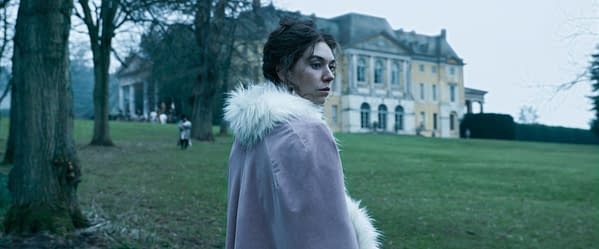
The Toxic, Tragic Love Story with Josephine is More Complete Here
The Theatrical Cut reportedly removed large parts of the love story between Napoleon and Josephine (Vanessa Kirby), but that subplot has a complete beginning, middle, and end in this version. Their relationship is portrayed as obsessive, co-dependent, and toxic, not the grand, tragic romance that some versions of the story believe in. It's frequently abusive and destructive, yet the two of them are completely lost without each other. A French film would have made it poignant and sweepingly romantic, but Scott doesn't believe that at all, so it's watched from a distance since neither of them is considered particularly likable. And Napoleon is at his most childish and petulant when he's with Josephine. It is possibly the most miserable love story ever filmed, and Kirby doesn't play it for laughs. She plays it with total conviction as if she were in a completely different film, a French film about a doomed woman in a doomed relationship.
A Possible Nod to Stanley Kubrick
Ridley Scott's reference here might be Stanley Kubrick's Barry Lyndon, which was a deadpan, ironic satire, and Scott's Napoleon has that feel about it. It's not as dry and austere but is shot through with total irreverence. We've been conditioned to expect historical epics to be Very Serious, but Napoleon isn't really that at all. It has the illusion of being Very Serious, but it's really a piss-take, with its fast-and-loose approach to historical events (Napoleon never witnessed Marie Antoinette's beheading, nor ever fired cannons at the pyramids of Egypt, but it certainly looks spectacular in a movie and gets the point across faster!) and treatment of its main character as an utter buffoon—a buffoon who got over a million people killed. Any parallel to the current political leader is probably not coincidental.
The Big Theme: Don't Ever Trust "Great Men"!
There is a theme about the folly of men who pursue a Great Destiny, thinking they will be great men, and it's usually to assuage an emptiness or wound at their core. Scott seems to see Napoleon as a pathetic little mama's boy, desperate to be loved or at least just liked. For every instance of his military and strategic prowess, Bonaparte still comes off as an utter dweeb. Even Wellington, who defeated Napoleon at Waterloo and is still revered by some people in England, comes off as an arsehole, albeit one with great intelligence and nuance, and Rupert Everett plays him with a plummy, pompous comic edge as an arsehole. There's a horror underneath all the comedy, which is that this pathetic jerk killed over a million people. In Ridley Scott's eyes, no great men rule, only jerks who get into power.
Napoleon: The Director's Cut is streaming on Apple TV+.
